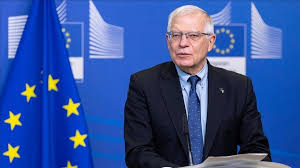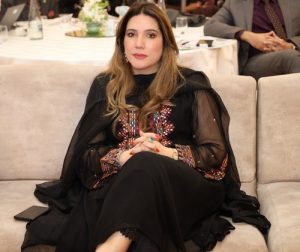EU organizes discussions to support Gaza’s Palestinian Authority

Brussels: Josep Borrell, the head of EU foreign policy, hosted Palestinian Prime Minister Mohammed Mustafa on Sunday for international discussions about establishing the Palestinian Authority and eventually removing Hamas from power in Gaza.
Shortly before entering the meeting with Mustafa, Borrell stated that a “strong” Palestinian Authority is necessary to bring about peace in the Middle East.
As the search for a hostage-release agreement and a Gaza ceasefire drew to a close, negotiations were taking place.

They also arrived right before Norway, which was hosting the gathering in Brussels, shocked Israel on Tuesday by recognizing the State of Palestine together with Spain and Ireland.
While the US is exerting pressure to end the Gaza War, efforts are beginning to be made to create the framework necessary for long-term peace.
The overthrow of Hamas as Gaza’s ruler is a crucial need for it. Increasing the strength of Mustafa’s Palestinian Authority, which governs the West Bank, to enable it to seize control of Gaza is the only practical solution that diplomats have found.
According to a count based on Israeli numbers, 1,170 persons were killed in Hamas’s October 7 attack in Israel, the majority of whom were civilians. This attack set off the Gaza war.
Moreover, 252 captives were taken by militants; 121 of them are still in Gaza, including 37 who the army claims are dead.
According to the health ministry of the Hamas-run enclave, Israel’s retaliatory offensive has killed at least 35,984 individuals in Gaza, the majority of them civilians.
“A functional Palestinian Authority is in Israel’s interest too, because to make peace, we need a strong Palestinian Authority, not a weaker one,” Borrell said.
The meeting on Sunday, according to Mustafa, was “a significant opportunity” for the Palestinian Authority to present its goals and agenda.
He stated that helping the Palestinians in Gaza, particularly through a ceasefire, was the “priority,” followed by “rebuilding the institutions of the Palestinian Authority” in that region, which Hamas had taken over in 2007.
Espen Barth Eide, the foreign minister of Norway, presided over the Brussels meeting on international help, which was centred on the Oslo Accords of 1993, which set up several agreements between Israel and the Palestinians.
“We need to make sure that the Palestinian Authority… has to be able to survive to be strengthened, to improve its capacity to deliver services, to reform, and also to plan for a future return to Gaza,” Barth Eide stated.
Along with the European Union, Norway, and the Palestinian Authority, Saudi Arabia, Egypt, Jordan, Qatar, the United Arab Emirates, Tunisia, the International Monetary Fund, and the United Nations were also represented in the negotiations. Japan, Britain, Australia, and Canada also participated.
Before the negotiations, Mustafa thanked Spanish Foreign Minister Jose Manuel Albare at a separate press conference for his nation’s statement that it would recognize Palestinian statehood.
The move by the three European nations addresses “the injustice that has been inflicted on the Palestinian people for decades,” Mustafa said, adding: “We want to have every country in Europe to do the same.”
He will meet with the ministers from Spain, Norway, and Ireland again on Monday in Brussels. And he’ll be in Spain on Wednesday.
Israel has threatened Spain, Norway, and Ireland with “serious consequences” if they continue to have relations with them after they formally recognized a Palestinian state.
The majority of UN members acknowledge Palestine’s sovereignty. On this matter, European nations are divided.
The EU states of Bulgaria, Cyprus, the Czech Republic, Hungary, Poland, Romania, and Sweden will now recognize the State of Palestine together with Spain, Norway, and Italy.

